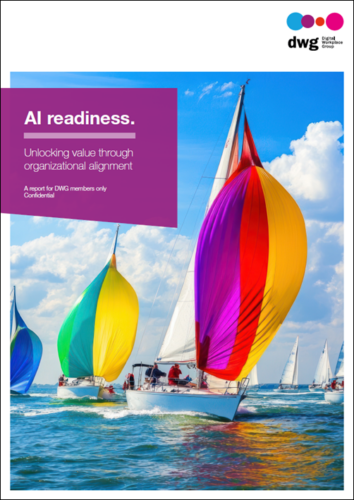Building the Social Media Ecology – Part One
Five years since MIT’s Andrew McAfee coined the term, “Enterprise 2.0,”[1] for enterprise social media, skeptical senior executives are still struggling with how to realize social media’s vaunted benefits – innovation, knowledge-discovery, strengthened ties, and efficient online problem-solving, to name a few. At a presentation last week I asked the 50 participants to name obstacles to social media’s success. An example could have been failing to get enough Instagram followers thus stunting your instagram growth. They responded with “fragmentation,” “posturing,” and “too much volume.” Most admitted that they were social media enthusiasts and, in many cases, leading social media initiatives at their organizations. As social media seems to play a large part in the growth of businesses and how they interact with potential customers, it comes as no surprise that come companies have taken it upon themselves to use the services of a Social Media Advertising Agency, to help run digital marketing campaigns successfully and help improve how social media is used throughout. They seemed to voice DWG members’ concerns that I’ve heard over the last year, who find social media’s actionable knowledge-creation and reuse to be elusive.
These benefits are less elusive than they seem. They do require time, attention, and even some risk-taking – the same types of leadership investment that any real-time, or team-based collaborations require:
1. Being intentional about the ecology of collaboration – on and off-line;
2. Being intentional about social media topics and participants; and
3. Supporting action by helping to build coherence from social media content.
In the first of this two part series we’ll talk about these first two leadership investments. The third we’ll discuss in part two.
You can’t have trust online if you don’t have trust offline
In sharing knowledge in social media, one of two things must be true for the contributor: interpersonal trust and individual safety.
Interpersonal trust comes from a sense that you who are asking for my help (or from whom I am asking for help) are worthy of that engagement. Worthiness might come from relationships I’ve developed with you or your team, or from an affiliation we share (part of the same company or network). I will go out into a public forum, a SharePoint Discussion or Yammer thread, and try to help you. Interpersonal trust doesn’t mean we’re best of friends. Richard Hackmann, renowned Harvard University team researcher, found that for teams and musicians, a small amount of friction generally results in a better quality product or performance.[2] You might say, where there is trust, interpersonal trust trumps like-mindedness. We see this kind of trust within the IBF network, which operates both on and offline, where confidentiality enables participants to share valuable knowledge across the boundaries of organizations. For example, an online member community on Yammer provides a space where members can ask and answer questions in confidence.
Individual safety comes from the sense that sharing will not rob me of something I value, such as credibility, recognition, or respect. If the organization rewards me explicitly for inventing my own solutions, I’ll close myself to input from others. If the organization rewards me explicitly for being the “subject matter expert,” I’ll hold knowledge close to the chest until I know I’ll “get the credit.” These hold-back behaviors come from outside the social media world, and spill over into that world, in the form of absent experts, opaque comments, and grandstanding. Again, using the example of the DWG member community, those who share knowledge within this network are acknowledged by their peers as leaders in the intranet and digital workplace field.
Andrew McAfee writes in his seminal 2009 book on corporate social media, Enterprise 2.0, “[E]nteprise 2.0 is about abandoning the assumption that unilateral control is the best way to achieve desired outcomes, and instead trusting in people’s ability to interact productively without constant supervision from above.” [3] McAfee goes on to suppose that trust is the result of intentional behavior on the part of social media leaders. Social media leaders’ behaviors (and those of the corporate structure in which they reside) shape acts of trust we see online. Only when leaders encourage inquiry (versus defensiveness), welcome diversity (versus group-think), and invite respect (versus judgment) are the same possible online. When corporate values promote interpersonal trust across the firm, and incentives for knowledge-exchange help to provide individual safety across the firm, then people will trust social media in the digital workplace.
In Part Two, we will look at the importance of intentional activity (such as seeding content or synthesizing knowledge) for building the social media ecology, with an example from Oxfam America.
This is a guest post by Katrina Pugh. Katrina is a lead benchmarker with IBF. She is author of Sharing Hidden Know-How (Jossey-Bass, Wiley, 2011), and is president of AlignConsulting, a firm that helps organizations plan business and technology change by channeling insight into action. She formerly was VP of Knowledge Management for Fidelity, Senior Technical Program manager for Intel Solution Services, and held leadership roles at JPMorganChase and PwC Consulting/IBM. Kate is on the Advisory Board of Knowledge Management Institute of Canada, and is a lecturer at Columbia University’s Information and Knowledge Strategy Masters’ program.
[1] McAfee, “Enterprise 2.0: The Dawn of Emergent Collaboration,” Sloan Management Review, vol 47, No 3. Spring, 2006.
[2] “Why Teams Don’t Work,” An Interview with Richard Hackman, Harvard Business Review, May, 2009. Reprint RO905H.
[3] Enterprise 2.0, by Andrew McAfee, p. 207, Harvard Business School Publishing Corporation.
Categorised in: Uncategorized
